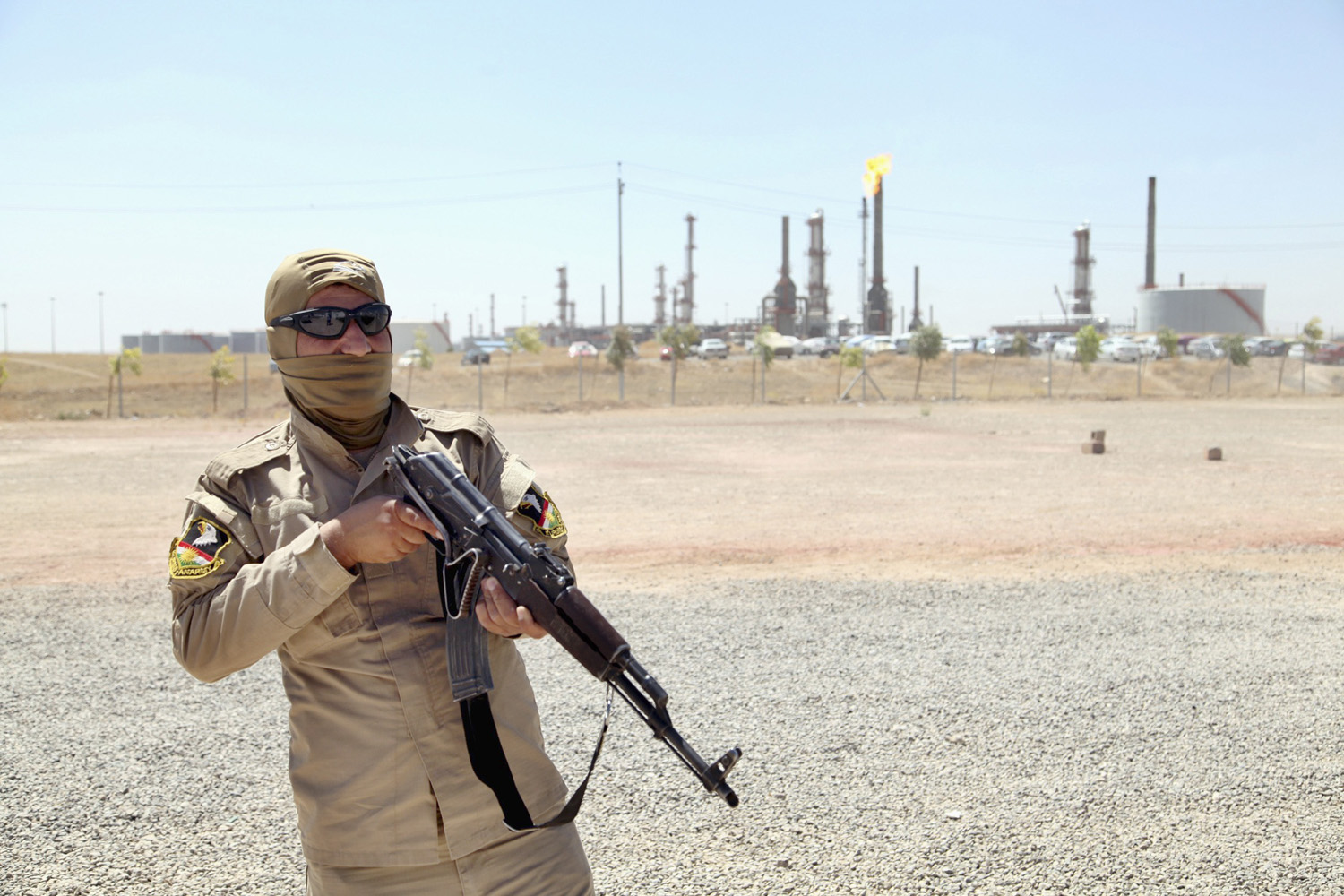
During a june 19 White House press conference, U.S. President Barack Obama gave all the expected reasons for acting against the Islamic State of Iraq and Greater Syria (ISIS): worrying instability in the Middle East, the risk of jihadist blowback in the West, simple human suffering. But the President noted one more reason for intervention in Iraq that U.S. policymakers have usually downplayed in the past. “In addition to having strong allies there that we are committed to protecting, obviously issues like energy and global energy markets continues to be important,” said Obama. In other words: We need Iraq’s oil.
That much is obvious from production numbers alone. Iraq is the seventh largest crude pumper in the world, adding 3.3 million barrels per day (bpd) to the global oil market. The advance of ISIS in Iraq’s north and the threat of further unrest in the region has already goosed oil prices, which hit a nine-month high of more than $115 a barrel on June 23. International oil companies like BP and ExxonMobil have begun pulling expat staff out of the country, and one of Iraq’s main refineries in the city of Baiji has already been the site of fierce fighting.
Yet considering Sunni militants are currently parked outside the capital of one of the world’s biggest producers of crude, global oil markets have actually reacted with surprising aplomb. That’s partially because nearly all of Iraq’s oil fields and infrastructure are in the predominantly Shi‘ite south, far from the fighting, which means the country’s production hasn’t been much affected by the conflict. And right now the world has a rather plush cushion of oil, thanks in large part to a country that’s been better known for its unquenchable thirst for crude: the U.S. The fracking revolution has unlocked vast new supplies of previously inaccessible American oil. Since 2010, the U.S. has boosted production by about 2.5 million bpd—reaching 7.4 million in 2013—which accounts for nearly the entire global increase over those years. The U.S. is even taking initial steps toward allowing the export of unrefined crude. Fracking may remain controversial for its possible environmental impacts, but without it the world might be paying a lot more right now for a barrel of crude.
But the American cushion can only protect us so much. If Baghdad were to fall to ISIS, or even if the war were to simply continue indefinitely, it seems unlikely that drilling would continue unaffected in Iraq’s south. According to an analysis by the nonprofit Securing America’s Future Energy, if just a third of Iraqi production were to go off-line, oil prices could rise by as much as $40 a barrel. That would have devastating consequences for a still fragile global economy.
The real danger from instability in Iraq, however, is over the long term. Iraq has the world’s fifth largest proven oil reserves, which means the country has a lot of crude left to pump. Because Iraq’s oil industry was artificially depressed by years of mismanagement under Saddam Hussein, international sanctions in the 1990s and the ravages of war over the past decade, the country has a lot of room to improve. And that’s exactly what it was doing—production briefly hit 3.6 million bpd in February, the highest level since Saddam seized power in 1979, as the Iraqi government worked with major oil companies to build its drilling capacity.
Oil remains the indispensable energy source—crude accounts for 96% of global transport fuel—and as the international economy keeps growing, so will demand for crude. The International Energy Agency (IEA) has projected that global consumption will increase by 1.4 million bpd in 2014 alone. The oil market is a remorseless treadmill—if new supplies can’t keep up with rising demand, prices will rise, crippling economic growth.
No country was poised to play a bigger role in that race than Iraq. In 2012 the IEA projected that Iraq’s production could almost double to nearly 6 million bpd by 2020, a bigger increase than in any other country, and the Iraqi government was aiming for as much as 9 million bpd by that year. Yet that growth is dependent on heavy investment in production—something the war with ISIS is disrupting. The IEA has already cut its forecast for Iraqi production in 2019 by nearly half a million bpd.
It was never quite true that the U.S. was fighting a war for oil when it invaded Iraq in 2003. But if Washington can’t help Baghdad stop ISIS now, oil will be a casualty this time around.
More Must-Reads from TIME
- Cybersecurity Experts Are Sounding the Alarm on DOGE
- Meet the 2025 Women of the Year
- The Harsh Truth About Disability Inclusion
- Why Do More Young Adults Have Cancer?
- Colman Domingo Leads With Radical Love
- How to Get Better at Doing Things Alone
- Michelle Zauner Stares Down the Darkness
Contact us at letters@time.com